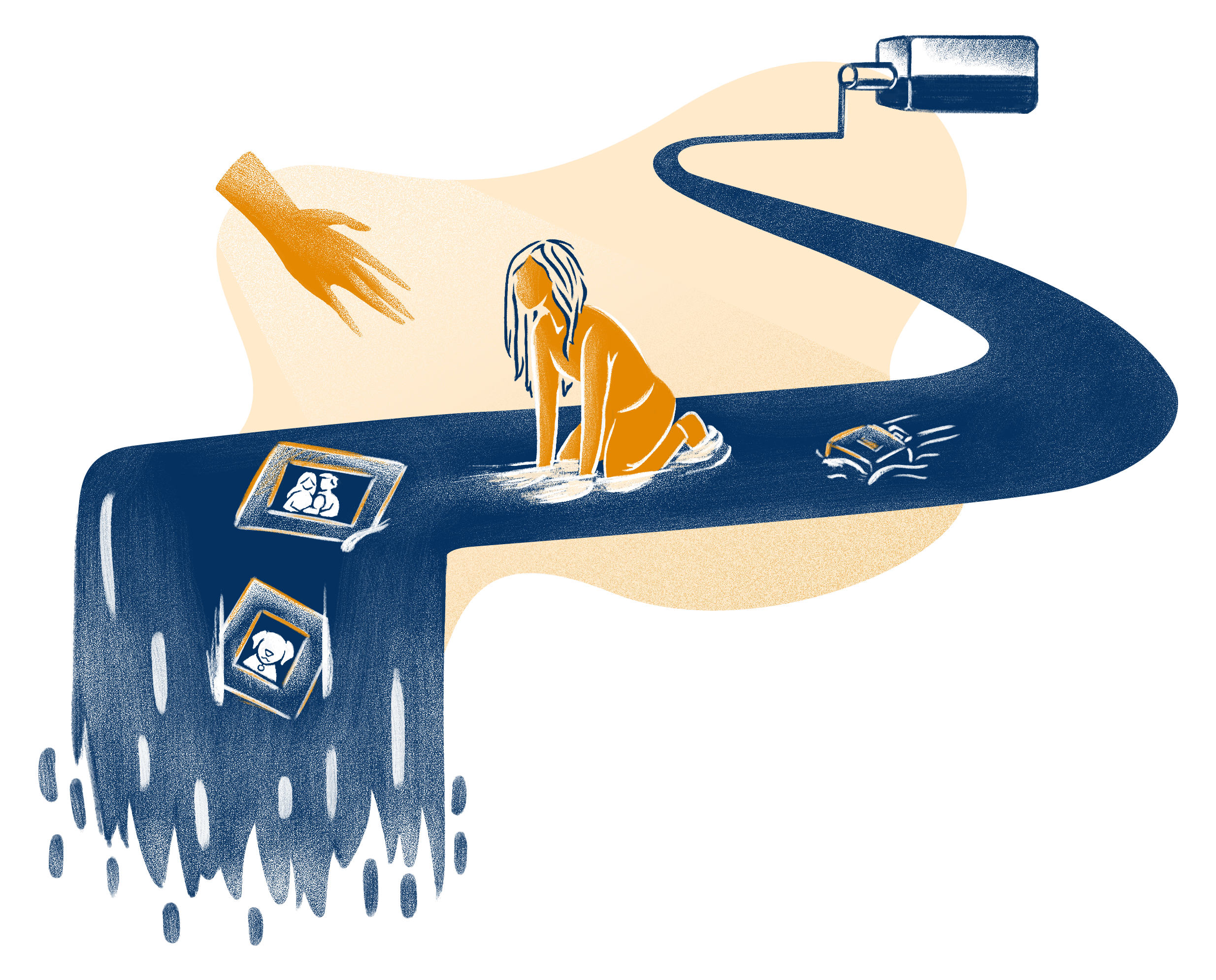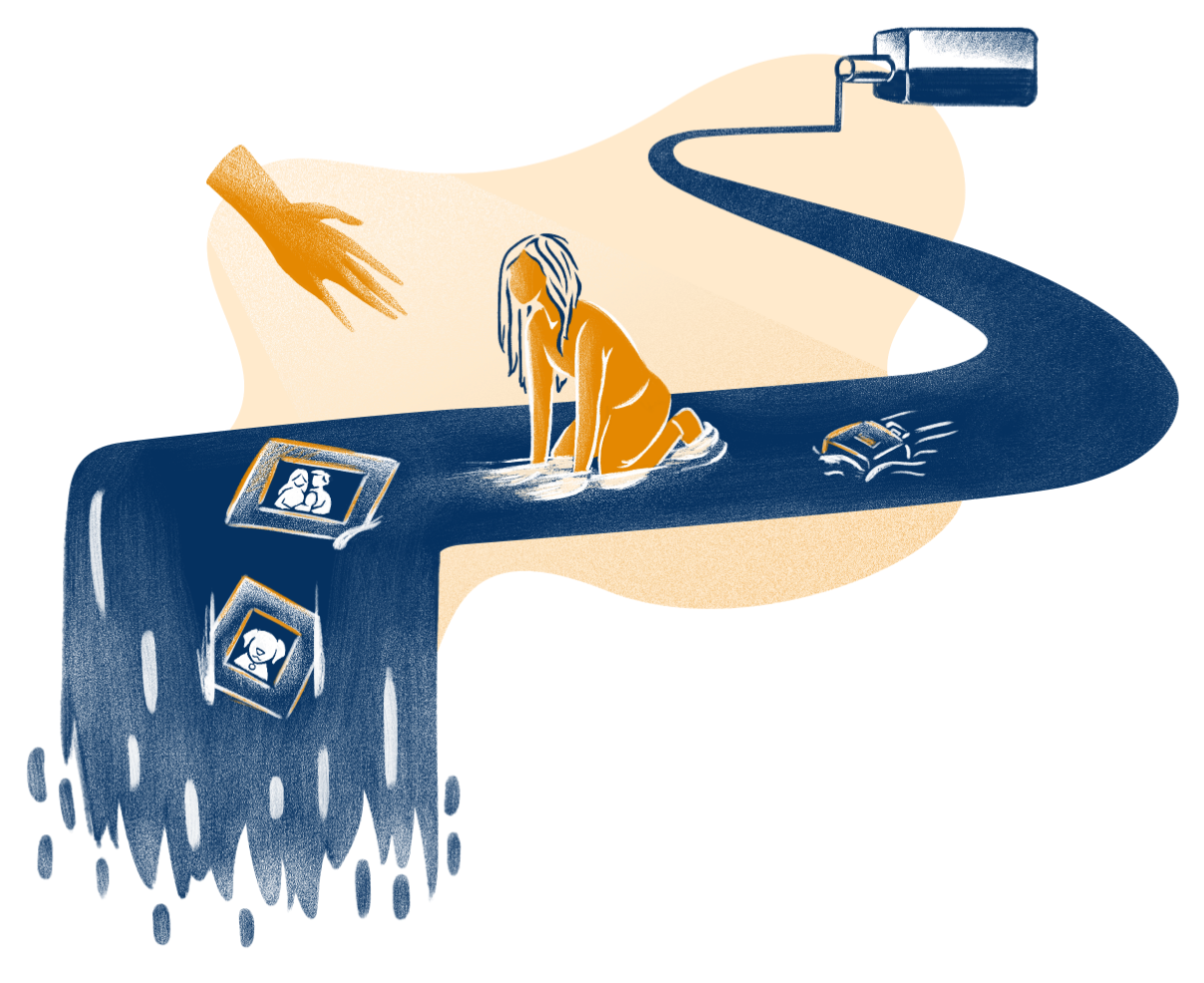
how to quit drinking
You can change your relationship with alcohol without shame or stigma. There’s no perfect way to quit drinking, but we can help you get started.

why do you want to
stop drinking?
Determining why you want to quit drinking is important to your success, but the amount of self-reflection is takes to understand your reasoning can be scary.
For some, simply answering the question, “Does alcohol cause problems in my life?” determines if you are suffering from a drinking problem. Regardless of how you got to this point, here’s how you can set yourself up to a brighter future.
common reasons to quit
- improve relationships
- reduce risky behavior
- enhance mental clarity
- perform better at work or school
how to quit drinking:
6 steps for success
disclaimer: alcohol withdrawal can be life-threatening. never quit drinking “cold turkey” without the help of a professional.
step 1
determine why you’re wondering how to stop drinking
Know your 'why'. The hangovers, the isolation, the relationship issues—you could be facing a number of problems that have you questioning how to stop drinking.
step 2
explore your relationship with alcohol
Sometimes, it’s best to take a step back and really look at your relationship with alcohol. Start by understanding your drinking habits and then you can answer the question, 'do I have a problem?'
Take our addictionself-assessment quiz Take our addiction self-assessment quiz
step 3
find support from a recovery community
Emotional support is key to recovery, especially from people who have gone through similar journeys. Join a free online recovery community, and you’ll find support from people who understand the journey you are on.
step 4
establish a plan
Drinking can turn into an automatic response in certain situations, like an after work drink or a reaction to a stressful situation. For many, establishing a reliable plan requires support from a substance abuse counselor.
step 5
develop a consistent routine
A new routine that doesn’t include drinking is a critical step to stop drinking. Focus on activities like working out, prioritizing self-care and wellness, and find a new hobby as you step into a healthier lifestyle.
step 6
reach out for support
Support can come from all places. Reach out to someone you trust if you’re in need of additional help. This can be family members, friends, or others who have decided to explore quitting drinking.
is alcohol causing you problems?
Talk to Someoneif you’re trying to quit, you’re not alone
In the United States:
137.9 million
people aged 12 or older
consume alcohol
65.8 million
people are binge drinkers
16 million
people are heavy drinkers
In the United States, 137.9 million people aged 12 or older consume alcohol. So for many people, drinking is considered normal. When looking at these numbers more closely, 65.8 million people are binge drinkers, and 16.0 million people are heavy drinkers.
Why are we sharing these numbers? Chances are you are not the only one who may be asking: do I have a drinking problem? In fact, we talk to people just like you every single day.
If you’re having a hard time controlling your drinking, you may be suffering from alcohol use disorder (AUD). AUD is the inability to control drinking due to both a physical and mental dependence on alcohol. It is one of many substance use disorders (SUD). With more than 3 million sufferers in the U.S. every year, it is the most common form of substance abuse.
If you’re trying to discontinue drinking alcohol and having a hard time, there is hope. 4 million people receive treatment for a SUD, including AUD, each year. So, if you have already tried the steps above and are still struggling, call our free helpline today at 800.258.6550.
take back your life from alcohol
We understand sometimes it won’t be easy, but we are here to support you all the way.
800.258.6550can we talk?
see what our clients have to say
I really wanted to quit drinking…
I really wanted to quit drinking but at the same time hold down a job. Lionrock was the answer for me. I was very cautious at first, I...
Start the Journey to a New You
After admitting that I could not control my addictions alone, Lionrock was perfect for me. They have a simple goal to help you...
Lionrock is for everyone
There is no reason NOT to choose Lionrock if you think there is a chance you need help finding and navigating sobriety. They...
commonly asked questions
-
what are some activities that can replace drinking?
Finding something to do instead of picking up a drink is an important part of recovery. Things like joining an online support group, taking a walk, reading a book, exercising, attending a workshop, going to lunch, and volunteering for a local charity can help take your mind off of alcohol.
If you’re looking for activities to do that don’t involve alcoholic beverages, connect with others in the recovery community, and they’ll provide you with many helpful tips.
If you consistently find your mind drifting back to drinking, reach out to a medical professional or counselor for additional help.
-
is it safe to discontinue alcohol cold turkey?
For heavy drinkers who are dependent upon alcohol, cutting it out cold turkey can be dangerous and even life-threatening. A medical detox facility can help you get through the withdrawal process safely.
For individuals who are heavily dependent upon alcohol, detox is an essential first step. After completing detox, individuals often enter an appropriate alcohol treatment program.
-
what are alcohol withdrawal symptoms?
Alcohol withdrawal symptoms can occur after someone discontinues using alcohol following a period of heavy use.
Withdrawal symptoms can begin within hours of your last drink, or they may take days to appear. Withdrawal can be life-threatening and require professional help. Symptoms of alcohol withdrawal may include, but are not limited to:
headaches
anxiety
tremors
insomnia
fatigue
mood changes
gastrointestinal disturbances
heart palpitations
increased blood pressure or heart rate
hyperthermia
rapid abnormal breathing
hallucinations
seizures
For individuals with severe AUD, withdrawal can be life-threatening. If you or someone you know is experiencing symptoms of withdrawal, seek medical help immediately.
